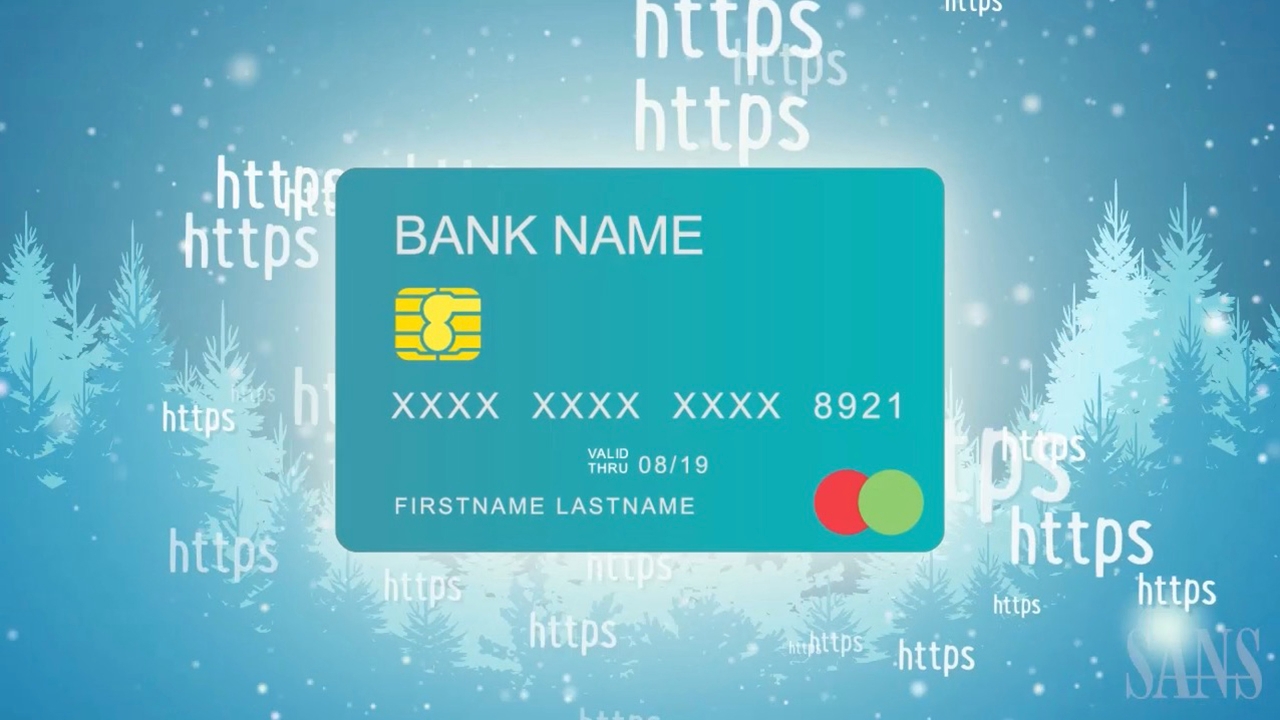SEC595: Applied Data Science and AI/Machine Learning for Cybersecurity Professionals


Experience SANS training through course previews.
Learn MoreLet us help.
Contact usBecome a member for instant access to our free resources.
Sign UpWe're here to help.
Contact UsThe holiday season is upon us, which means wallets are burning holes in pockets around the world faster than a Yule log...

The holiday season is upon us, which means wallets are burning holes in pockets around the world faster than a Yule log. The National Retail Federation reports that almost 2 million more people are expected to shop from Thanksgiving Day through Cyber Monday this year compared to last. While you’re compiling wish lists and shopping lists, this is also the time of year many cybercriminals roll out their best-dressed scams, dampening the holiday spirit for people around the world.
Here are some key tips for protecting yourself not only during the holidays, but throughout the whole year:

Some criminals create fake websites to prey on shoppers who are out there looking for the best deal possible. They’ll replicate the look of real sites or use the names of well-known brand names. If you’re shopping for a bargain online, you may be directed to one of these fake websites, so it’s important to keep an eye out for websites that advertise prices dramatically cheaper than anywhere else or offering products that are otherwise sold out.
The products are generally so cheap because the items may be counterfeit, stolen, or even worse, you may not even receive your purchase. Here’s a few more tips to protect yourself:
Remember, just because the site sounds familiar, doesn’t mean it’s legitimate. If you aren’t comfortable with the website, don’t use it. If it sounds too good to be true, follow your instinct. Don’t bet your personal data on a few good cyber deals.

Take the time this holiday season to also ensure your computer or mobile device is secure. Cybercriminals can try to infect your devices in an attempt to harvest your bank accounts, credit card information, and passwords. Remember these two tips to keep your devices secure:

Even if you don't shop online often, it is wise to regularly review your credit card statements. It will help you to identify suspicious charges, especially after you used your card to make a purchase at a new site.
If you believe you've fallen victim to credit card fraud, immediately contact your credit card company.
Here are more tips to help you keep your card and banking information safe:
Check out our #SecureTheFamily During the Holidays page for more tips and resources.


Lance revolutionized cyber defense by founding the Honeynet Project. At SANS, he has empowered over 350 organizations worldwide to build resilient security cultures, transforming human risk management into a cornerstone of modern cybersecurity.
Read more about Lance Spitzner